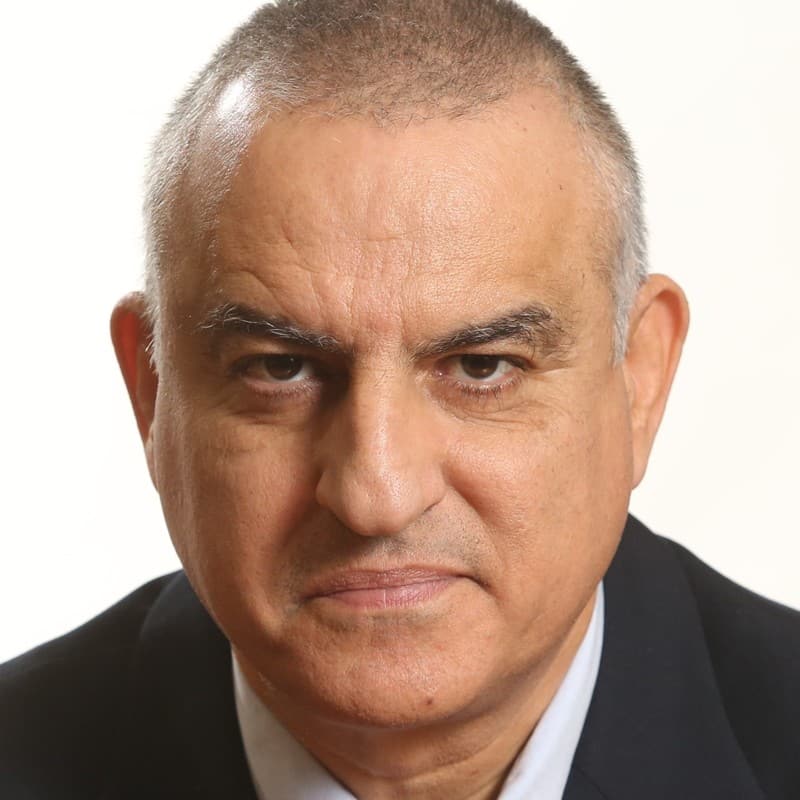The IDF has turned into a locomotive that is pulling the Israeli economy in technology and cyber sectors.
The Innovation Authority’s 2023 annual report shows that in recent decades, the hi-tech industry has become the engine that pulls the Israeli economy and the industry with the largest and fastest growing output in the economy. The report also shows that between 2012 and 2023, the average growth rate of the number of employees in the hi-tech industry was three times the general rate in the economy. The growth rate was 6.3%, compared with 2.2% in the overall economy. Moreover, the hi-tech rate of GDP was over 18%, as the GDP doubled within a decade to NIS 290 billion in 2022.[1]
The software and cyber sector creates a significant comparative advantage for Israel, with over 40% of the new start-up companies operating in this field and over half of the investments flowing into the cyber and software sector. Israel has become a world leader in cyber and information security. This process continues. According to the head of the Israel Innovation Authority, Israel is pushing to take advantage of three areas of innovation: Generative Artificial Intelligence, Quantum Computing and Communication, and Climate-Related Innovation.[2]
How did Israel become a world power in technology and cyber? What are the main reasons that led Israel to this status, and what can be learned from this for the future?
One of the main engines for Israel’s growth process in the cyber and technology domain stems from several elements, the main one being the security development needs. This development requires a close partnership with the private sector and academia. The excellence of these sectors led many international companies to establish their development centers in Israel.
The basic concept of security formulated by David Ben-Gurion in the early years of the state rested on three pillars: Deterrence, Early Warning, and Decisive Victory. Maintaining a sizeable regular military was practically impossible, so Early Warning was required to gather the reserve units. This constraint obliged the IDF to establish a sophisticated intelligence system to provide early warning. The intelligence units of the IDF were required to develop diverse capabilities. The information revolution and the development of technology caused intelligence to be based more and more on technological capabilities in cyberspace. So are other units in the IDF and the security organizations, including the air and sea forces, the communication branch, electronic warfare, command and control systems, and the Mossad and the General Security Service.
In addition, conscription for the IDF is an essential element in developing the technological environment in Israel. The specialized units in the IDF begin the selection process at very early stages and enjoy access to the highest quality personnel resources of the State of Israel. The IDF approaches students, even during their high school studies, through a broad marketing system and the promise that the recruits will acquire a profession and skills that will serve them even after their service. The graduates of the technology and cyber units have a guaranteed advantage and horizon in building their professional future after their service.
The recruits are funneled into a unique IDF training process. The Intelligence and Communication branches’ technological corps have established training systems that are among the most advanced in the world. The school for computer professions and cyber defense conducts courses in programming, software development, computing infrastructure, cyber protection, etc. The variety of training programs of the Intelligence branch – which bases most of its efforts on gathering intelligence in cyberspace and analyzing it using advanced technological tools and artificial intelligence (AI) – are given to young recruits in their prime while encouraging initiative and innovation.
The demand for admission to the technological units in the IDF has even led civilian companies to offer preparation courses for recruits to help them pass the screening process for these units. Some programs aim to increase the presence of recruits from the periphery, such as the Magshimim program of the Center for Cyber Education, founded by the Rashi Foundation. These programs promote equal opportunities in Israeli society, together with the Defense Ministry.
The soldiers are integrated into the various technological units after training, thus gaining significant practical experience. Thousands enlist yearly for these routes, serve their mandatory service, and some even sign up for a few more years of service. Thus, thousands of IDF soldiers with vast technological experience are released into the Israeli economy every year. These enter the labor market, produce, and integrate into an ecosystem that drives Israel’s technological economy, including cyber, artificial intelligence, information analysis, and more.
The mandatory service, which allows the IDF access to the highest-quality manpower in the country and its integration into technological activities in the IDF, turns the army into a locomotive that is pulling the Israeli economy in technology and cyber. Many released soldiers have knowledge and ideas that lead to the establishment of many start-up companies operating in the global market. As a result, the Israeli hi-tech industry has become an essential player in the worldwide sector regardless of the size of the country in population and territory.
Another element is the activities of the state of Israel, which recognized this potential and established the ability to provide R&D funds to start-up companies to enrich intellectual property development in Israel. That, in turn, led to the establishment of venture capital funds and increased investments by foreign companies in Israel. So, too, was the establishment of the technology incubators and accelerator programs, which dozens of technology and cyber companies are absorbed into yearly.
However, there’s a catch: the youth’s pursuit of the technological units does contribute to the skills of Israeli intelligence and the state’s economy, but it harms the motivation to recruit into the fighting units. According to an internal survey conducted in the IDF, the motivation for combat service for men in 2022 was the lowest in recent years – 66% compared with 73% in 2020. For women, it was 48% in 2022, compared with 60% in 2018.[3] The continuation of this trend is very disturbing. A senior commander in the IDF previously stated that the decrease in motivation to serve in the field units is a result of the shift to the technological units of the best youth when the center of gravity of the service moves from the fighting field units to the special units and to those serving in the intelligence and technological units. As a result, the combat units must make do with those who failed or could not integrate into the personnel selection processes for the special units, the prestigious courses, and the technological and intelligence array.
The tension between the need to recruit quality personnel for the technological units and thus continue to provide quality personnel to the cyber and technology industry and the need to ensure that the combat units will also be able to recruit quality soldiers requires a response at the national level. Buds for this can be seen, among other things, in the training programs of fighters who finished their service in technological professions, for example, the program Warriors for Hi-Tech, which aims to train soldiers released to work in the cyber field.
Israel can continue to lead in cyber and technology, but it must balance all national needs. Moreover, those who served in the field units bring experience as fighters and commanders and other qualities necessary to the economy and employers, no less than the training and technological experience of those who served in the cyber groups.
The writer is one of the authors of the book Israel and the Cyber Threat – How the Startup Nation Became a Global Cyber Power, released in July 2023.
[1] Israel Innovation Authority Report (Hebrew), June 25, 2023.
https://innovationisrael.org.il/press_release/6700
[2] Ibid.
[3] Survey: Decrease in motivation for combat service – even before the political crisis (Hebrew), Channel 7, 23.4.2023.
JISS Policy Papers are published through the generosity of the Greg Rosshandler Family.
Photo: Shutterstock, Freepik





 - בניית אתרים
- בניית אתרים